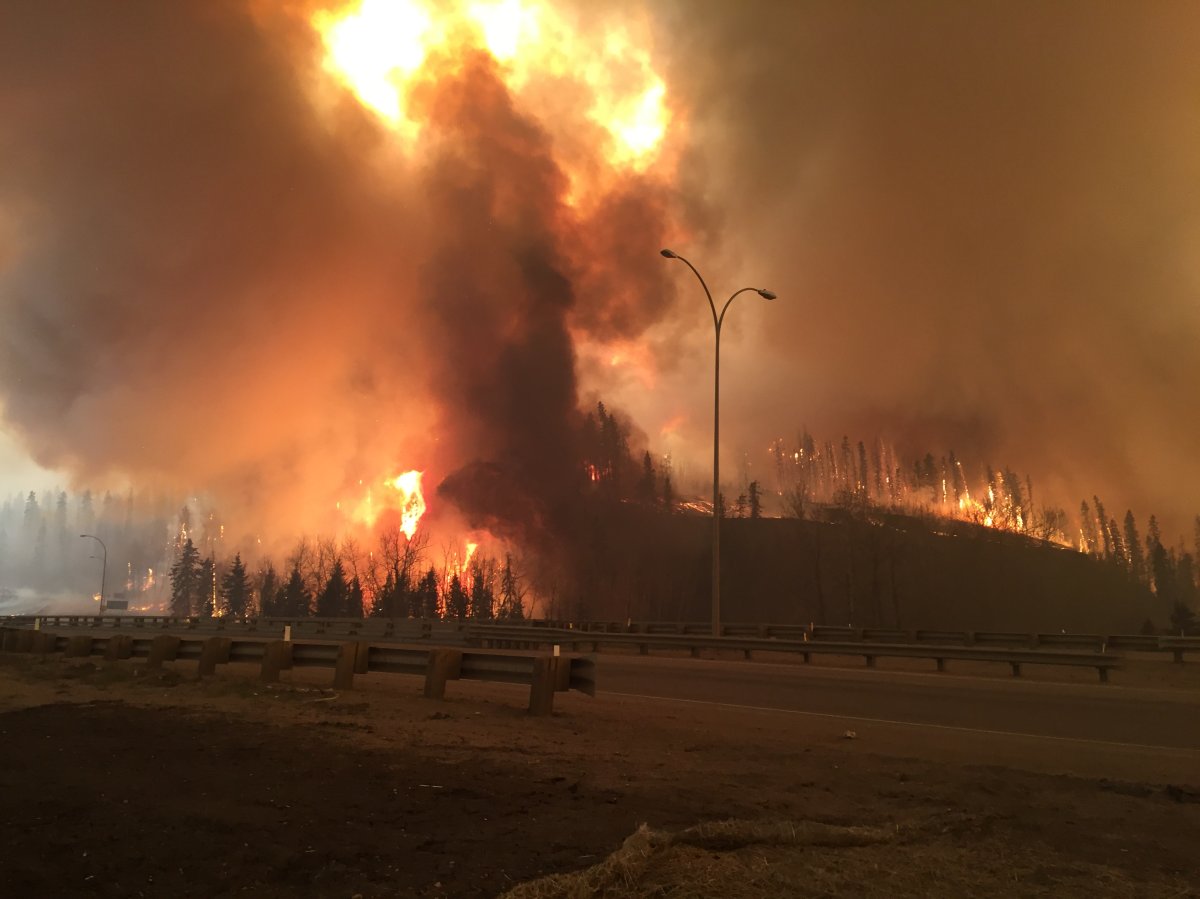Alberta hopes higher fines and a voluntary fire prevention program will help protect communities from wildfires this year.

Following the destructive wildfire in Fort McMurray last May, the government strengthened penalties for people who abandon campfires or burn during fire bans.
Agriculture and Forestry Minister Oneil Carlier said Alberta had the lowest fines across the country. Now, amended legislation has boosted the fine from $5,000 to $100,000 for individuals. Corporations used to face a fine as little as $5,000 but Carlier said it was increased to $1 million.
The exact amount of fines levied for each violation would be determined by the courts.
Under an Alberta Wildfire banner, Carlier also urged farmers and acreage owners to get a free fire permit before a controlled burn.
“If you get a permit we will know where all that burning is, preventing us from sending those expensive resources that may be needed elsewhere.”
READ MORE: RCMP say Fort McMurray wildfire likely ‘result of human activity,’ investigate if blaze was criminal
The legislation, which went into effect in December, also makes it easier for the government to restrict use of off-highway vehicles when fire conditions are hazardous.
Carlier said he hopes more communities will apply for Firesmart funding to clear brush and trees around populated areas.
“I implore the communities out there that are in need of a Firesmart program that they apply,” Carlier said Wednesday.
The Fort McMurray wildfire forced more than 80,000 people to flee the northern Alberta region and destroyed more than 2,400 homes and other buildings.
A report in January estimated the total financial impact of the wildfire at almost $8.9 billion.
READ MORE: Fort McMurray wildfire: Study pegs cost of lost buildings, income and environmental damage at $8.9B
In May 2011, a wildfire forced thousands of people to leave the town of Slave Lake, Alta., before flames torched more than 500 homes and buildings at an estimated cost of about $1 billion.
Carlier said the Firesmart program will remain voluntary, but he believes more municipalities will apply for funding this year.
“It’s topical. They have seen what happened in Fort McMurray last year. I am hoping for some really good uptake this year.”
The minister declined to say whether the government will earmark more money for Firesmart in its March budget. The program helps communities develop a plan to reduce vegetation, including removing volatile trees such as spruce, and building fire breaks.
READ MORE: Fort McMurray wildfire: Alberta agency tasked with preventing wildfires leaves millions unspent
A guidebook for municipalities, municipal districts and counties, First Nations and Metis settlements warns that “as more and more Albertans move into communities located in and around forested areas, many of these communities face a high to extreme wildfire risk.”
Alberta is making other changes to be ready for another potentially early fire season.
Carlier said the government has signed 120-day contracts with private air-tanker companies this season. The contract period had been reduced to 90 days early last year. That period was later extended because of the Fort McMurray fire.
Fire permits will also be required for any burning other than campfires in forested areas when the wildfire season begins March 1.
Last year there were 1,338 wildfires in Alberta that burned more than 611,000 hectares
The government estimates that more than 60 per cent of those fires were started by people. Lightning is the other major cause.
The cause of the Fort McMurray wildfire, which continues to burn but is under control, remains under investigation.
“The wildfire that burned into Fort McMurray last year serves as a reminder of how important it is for us to be ready to respond to wildfires at a moments notice,” Carlier said.
With files from Kendra Slugoski, Global News

Comments